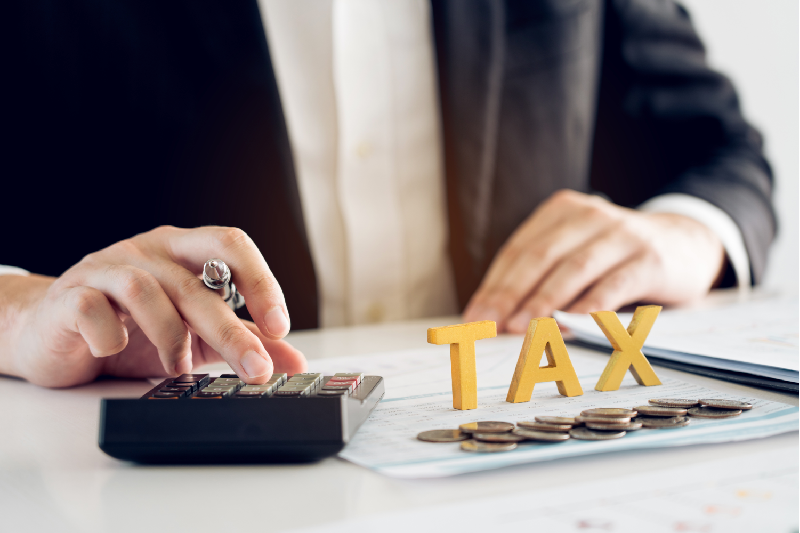Capital Gains Tax (CGT) is a type of tax you might need to pay on the profit (or gain) you make when “disposing” of an asset you own.
The disposal of an asset usually refers to the sale of it, but it can also mean giving it away, trading it for something else, or receiving compensation for its loss.
Who pays Capital Gains Tax?
It typically applies to individuals, and to business structures in which there’s no legal distinction between the business owner and the business (e.g. sole traders and partnerships).
In contrast, an incorporated business like a limited company won’t pay Capital Gains Tax if it makes a gain from an asset. Instead, companies pay Corporation Tax on any profits they make and this includes disposing of an asset.
You can work out if you need to pay CGT by adding together the total gains from each asset and deducting any allowable losses. You’ll pay Capital Gains Tax on any gains you make above the tax-free ‘annual exempt amount’. The exact allowance you’re entitled to depends on whether you’re an individual or a trustee.
- Individuals: the allowance is £3,000
- Trustees: it’s £1,500
If your total gains are below the allowance, you won’t need to report or pay Capital Gains Tax.
How much Capital Gains Tax will I need to pay?
Well, as mentioned above, there is a tax-free allowance available before you start paying Capital Gains Tax. You’ll only pay CGT on the gain, not the full amount you get, and you’ll only be taxed on any gains above the threshold.
For instance, if you spent money to buy the asset, then spent more on improvements, and then finally on advertising it for sale, you can deduct these amounts from the amount you got from its sale – because remember; you only pay CGT on the gain, not the total amount you receive.
The rate of CGT you pay on any gains above the allowance depends on what the asset is, as well as your Income Tax band. For the purposes of Capital Gains, assets are split into two groups: property, and ‘other chargeable assets’ – which basically means everything else!
For 2025/26, the rates are:
| Residential property | Other chargeable assets | |
| Basic rate taxpayer | 18% | 18% |
| Higher rate taxpayer | 24% | 24% |
| Trustee | 28% | 24% |
What assets are exempt from Capital Gains Tax?
Not everything you dispose of is subject to Capital Gains Tax, so there is some reprieve! You don’t have to pay CGT on gains from:
- Machinery
- Furniture
- Natural resources (e.g. coal and natural gas)
- Cars – but only if they’re not used for business purposes
- Things like gifts or investments
Although there’s a special category for Capital Gains on property, there are also times that property disposals will be exempt, too. For example:
- If the property in question is your only home, and you have lived in it almost exclusively (if not exclusively) for the whole time you’ve owned it
- You haven’t let any of it out or used part of it for business purposes
- You didn’t purchase the property with the express aim of profiting from it
How do I pay Capital Gains Tax if I owe it?
If you’re already registered for Self Assessment, you’ll need to report your gains in your annual tax return, although you’ll only pay CGT on anything above the allowance.
If you’re not registered, you only report your gains if the total gains you make in a year are more than the allowance (and you receive more than £50,000 in total from the associated transactions).
You’ll report your gains via the ‘real time’ Capital Gains Tax service, which requires you to sign in using your Government Gateway ID.
Note that this service can only be used to report gains on assets sold during the following tax years:
- 2024 to 2025
- 2025 to 2026
You won’t need to do anything if you’re not already registered for Self Assessment and the total amount of gains is below the annual exempt amount.
Can my accountant help me with my Capital Gains Tax?
The laws around Capital Gains Tax are pretty confusing. A qualified accountant can break it all down for you and ensure you aren’t paying more tax than you owe (no one wants that!).
One way they’ll do this is by checking you’re offsetting any costs associated with acquiring, improving, or disposing of the asset against your tax bill.
Remember to bear in mind that every business is unique and has its own challenges, and this is why it can be helpful to get some expert advice on what you need to do.
Do I need a specialist accountant?
The reality is that most accountants are familiar with CGT and able to offer advice on it. If your Capital Gains are particularly complicated or they involve an usual type of asset (such as crypto) then you might try and find one who specialises in that area if it gives you extra peace of mind.
Find more help in our online accounting hub, and learn more about how to find the right accountant for your business.







